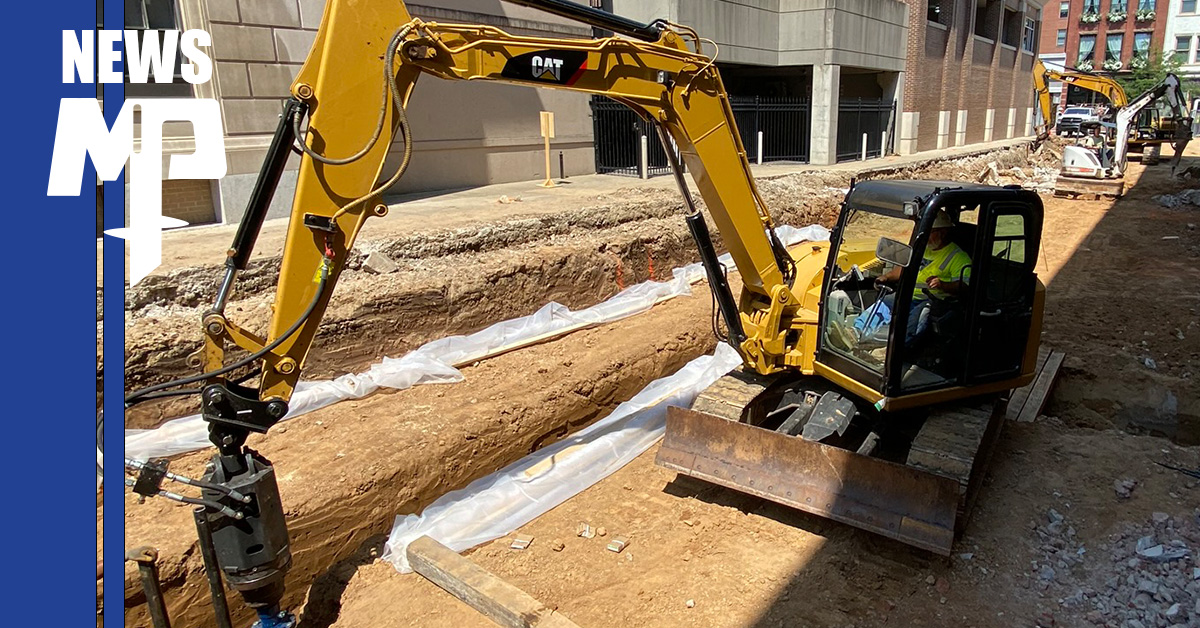
Pros And Cons Of Slab Foundations
You might be surprised to learn that not all residential and commercial foundations are created equal.
We generally think of foundations as a rectangular pit that’s dug several feet into the ground, then filled with concrete to form a basement area that also serves as a solid base for the rest of the structure. This is only one type of foundation, however.
An alternative to a traditional foundation is known as a slab foundation. As with any type of foundation or foundation pier, there are pros and cons associated with the slab option. In this post, we’ll discuss these advantages and disadvantages, as well as the reason why it’s common for foundation piers to be installed late in the life of a slab.
What Is A Slab Foundation?
Unlike a traditional foundation, which is dug several feet or more into the ground, a slab foundation is poured directly onto a leveled area of ground. This concrete forms a thick layer, known as the slab. This initial layer is typically reinforced with post tension cables or steel rods so that the slab is sturdy and ready to bear the intense load of a house or commercial building.
Pros Of Slab Foundations
Affordable
One reason that developers might opt to utilize a slab foundation is that it’s more affordable to construct in comparison to traditional foundation pier options. Slabs don’t require floor joists, which can have a big impact on overall price.
Quick Construction
Another advantage of slab foundations is that they can be laid very quickly. Without the need to dig down into the soil, the slab can usually be poured in a single day. Even if the ground needs to be leveled and prepared in other ways, the product usually only takes up one working day.
Energy Efficiency
As you can probably imagine, a slab foundation has no basement or crawlspace. Without this open space under the structure, many property owners find that the costs of heating and cooling the structure are drastically reduced.
Protection From Allergens And Pests
Another advantage of not having a crawl space is that there are fewer opportunities for allergens like mold and mildew to build up silently under the structure. For those who suffer from allergies, this is a big benefit. Like mold and mildew, pests like rodents and cockroaches often congregate in crawlspaces and basements. Without this area carved out under the house, the risk of infiltration is greatly reduced.
Cons Of Slab Foundations
Lack Of Storage
Although we’ve discussed the benefits of not having a crawlspace or basement, some property owners are disappointed by the lack of storage space.
Difficulty Of Plumbing Repairs
The plumbing for a house or commercial building is sealed underneath a thick layer of concrete. Any repairs needed will require expensive equipment to jackhammer into the slab.
Prone To Cracking
Finally, a big disadvantage of slab foundations is the fact that they’re prone to cracking. Cracks can form over time due to variations in weather or moisture,. Inconsistencies in the soil on can have the same effect. In these cases, foundation piers are necessary to support the structure and prevent catastrophic damage.
Are you concerned that your slab foundation could be developing cracks or other stability issues? Contact MAGNUM® Piering to learn more about how our foundation piers can help.
Related Posts
https://www.magnumpiering.com/2018/07/20/4-different-foundation-repair-systems-consideration/
